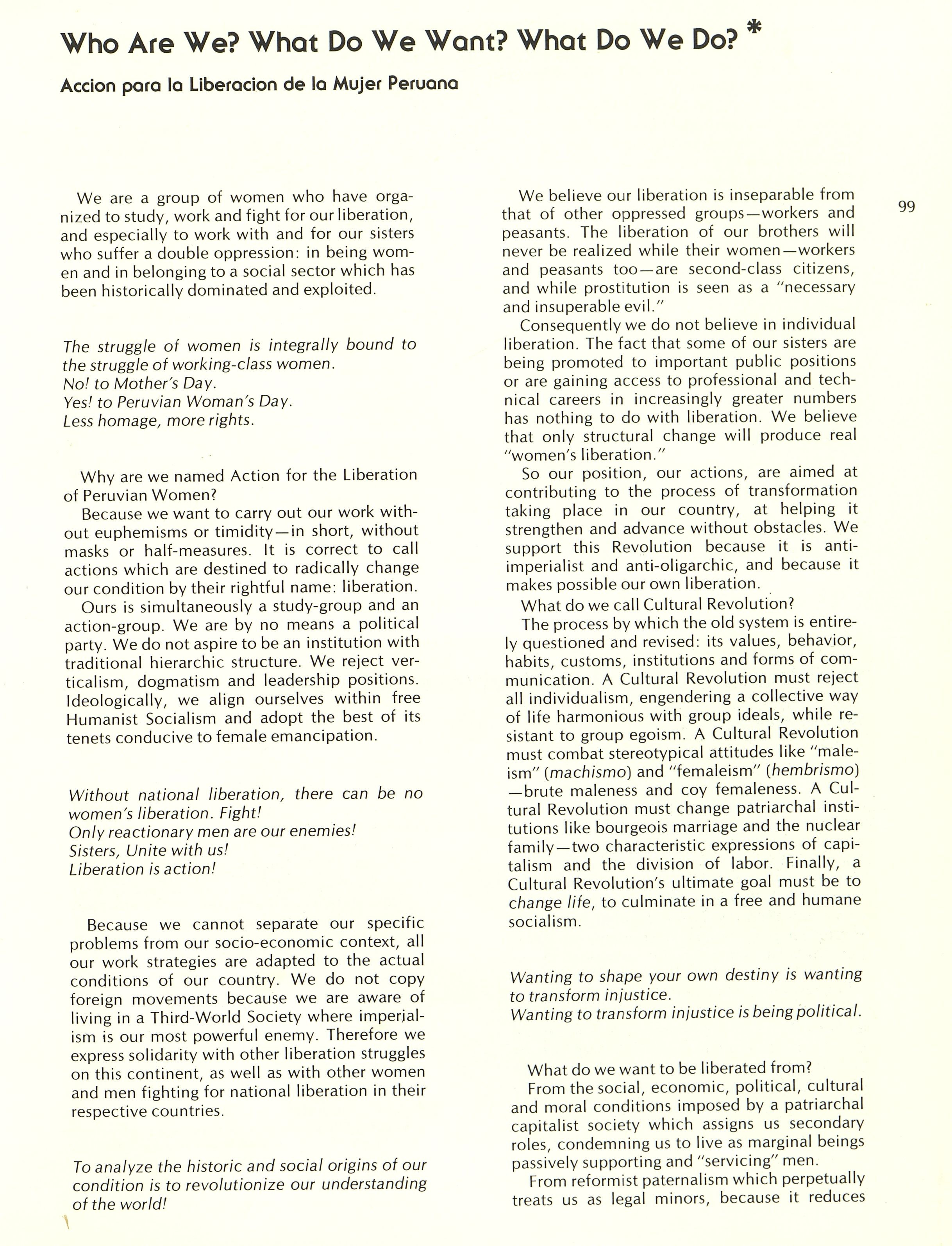
From the First-Issue Collective
Toward Socialist Feminism
Tijuana Maid
Women in the Community Mural Movement
Women and Honor: Some Notes on Lying
Adman
Zucchini Poem
The Art of Not Bowing: Writing by Women in Prison
Astrology Hype
Ten Ways of Looking at Prison Lunch
Alone
La Roquette, Women's Prison
Fays, Floozies, and Philosphical Flaws
The Esthetics of Power in Modern Erotic Art
ABCS
Do You Think
the empress anastasia in new york
Dead in Bloody Snow
Notes From the First Year
Feminist Abstract Art--A Poltical Viewpoint
"Female Experience in Art": The Impact of Women's Art in a Work Environment
The Pink Glass Swan: Upward and Downward Mobility in the Art World
Juggling Contradictions: Feminism, the Individual and What's Left
Moratorium: Front Lawn: 1970
Who Are We? What Do We Want? What Do We Do?
On Women's Refusal to Celebrate Male Creativity
What is Left?
Around Coming Around
Wages for Housework: The Strategy for Women's Liberation
Who Are We? What Do We Want? What Do We Do?
Accion para la Liberacion de la Mujer Peruana
We are a group of women who have organized to study, work and fight for our liberation, and especially to work with and for our sisters who suffer a double oppression: in being women and in belonging to a social sector which has been historically dominated and exploited.
The struggle of women is integrally bound to the struggle of working-class women.
No! to Mother's Day.
Yes! to Peruvian Woman's Day.
Less homage, more rights.
Why are we named Action for the Liberation of Peruvian Women?
Because we want to carry out our work without euphemisms or timidity—in short, without masks or half-measures. It is correct to call actions which are destined to radically change our condition by their rightful name: liberation.
Ours is simultaneously a study-group and an action-group. We are by no means a political party. We do not aspire to be an institution with traditional hierarchic structure. We reject verticalism, dogmatism and leadership positions. Ideologically, we align ourselves within free Humanist Socialism and adopt the best of its tenets conducive to female emancipation.
Without national liberation, there can be no women's liberation. Fight!
Only reactionary men are our enemies!
Sisters, Unite with us!
Liberation is action!
Because we cannot separate our specific problems from our socio-economic context, all our work strategies are adapted to the actual conditions of our country. We do not copy foreign movements because we are aware of living in a Third-World Society where imperialism is our most powerful enemy. Therefore we express solidarity with other liberation struggles on this continent, as well as with other women and men fighting for national liberation in their respective countries.
To analyze the historic and social origins of our condition is to revolutionize our understanding of the world!
We believe our liberation is inseparable from that of other oppressed groups—workers and peasants. The liberation of our brothers will never be realized while their women—workers and peasants too—are second-class citizens, and while prostitution is seen as a "necessary and insuperable evil."
Consequently we do not believe in individual liberation. The fact that some of our sisters are being promoted to important public positions or are gaining access to professional and technical careers in increasingly greater numbers has nothing to do with liberation. We believe that only structural change will produce real "women's liberation."
So our position, our actions, are aimed at contributing to the process of transformation taking place in our country, at helping it strengthen and advance without obstacles. We support this Revolution because it is anti-imperialist and anti-oligarchic, and because it makes possible our own liberation.
What do we call Cultural Revolution?
The process by which the old system is entirely questioned and revised: its values, behavior, habits, customs, institutions and forms of communication. A Cultural Revolution must reject all individualism, engendering a collective way of life harmonious with group ideals, while resistant to group egoism. A Cultural Revolution must combat stereotypical attitudes like "maleism" (machismo) and "femaleism" (hembrismo)—brute maleness and coy femaleness. A Cultural Revolution must change patriarchal institutions like bourgeois marriage and the nuclear family—two characteristic expressions of capitalism and the division of labor. Finally, a Cultural Revolution's ultimate goal must be to change life, to culminate in a free and humane socialism.
Wanting to shape your own destiny is wanting to transform injustice.
Wanting to transform injustice is being political.
What do we want to be liberated from? From the social, economic, political, cultural and moral conditions imposed by a patriarchal capitalist society which assigns us secondary roles, condemning us to live as marginal beings passively supporting and "servicing" men.
From reformist paternalism which perpetually treats us as legal minors, because it reduces everything to the creation or amplification of protectionary laws that are pretexts to mask our real situation of dependence on men and second-class citizenship.
From all kinds of ideological pressure, expressed in the terror most of us feel about joining feminist organizations, under the assumption that if we do so, we must be "against men." From the fear of being ridiculed or insulted as "tomboys," "whores," or "dykes."
Statistics affirm that few women are workers.
Out of the home and onto the production lines! Working women also carry the burden of the home!
Communal eating-places, day-care centers and laundries—to create new jobs and lessen the load of unpaid workers in the home.
Being a mother and being fulfilled shouldn't be a contradiction.
We want family planning in hospitals, accessible to everyone.
Against whom must we struggle?
Against the Patriarchal-Capitalist System which determines an unjust society, fostering exploitation, abuse, discrimination, hunger, wars and massacres; a system which transforms woman into a beast of burden (if she is proletarian), or into a luxury sex-object (if she is bourgeois). Capitalism has also reviled love, reducing male-female relationships to economic factors or to mere social appearances. It is a system in which children are the responsibility of individual couples and, in actual practice, of the women alone.
Against all sexist ideology which gains by reinforcing our situation as "different" and which is expressed in the cult of "femininity"—sweetness, weakness, virginity and motherhood as woman's only aim and destiny.
And finally, against all threats to the liberation front whose ultimate goal is the Monolithic Unity of Revolutionary Women, and of those men who integrally support the cause of our liberation.
Excerpts (slightly rearranged) from the booklet of this name distributed by "Accion para la Liberacion de la Mujer Peruana," April 15, 1975, Lima, Peru. This text was taken from the first half of the booklet; the second half deals with a specific program for practical revolutionary work. The following are listed as the group's coordinators and "honorary members“: Cristina Portocarrero Rey, Ana María Portugal, Amor Arguedas, Dorelly Castañeda, Beatriz Ramos, Lucía Parra, Margot Loayza, Edith Alva, Carmela Bravo, Dora Ponce, Flor Herrera, Leo Arteaga,Diana Arteaga, Dora Guerrero, Bertha Vargas, Inés Pratt, Adela Montesinos, Estela Luna López.
